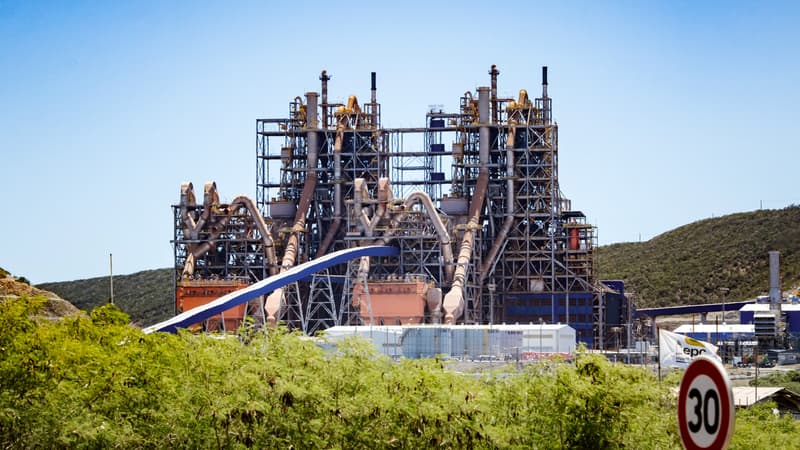One of the economic lungs of the island and part of the project to rebalance the economy between the north and south of New Caledonia, the Koniambo Nickel SAS factory ceased its activity on Saturday. In the Voh offices, the last employees pack their belongings into boxes. A small group greets each other for the last time, before passing through the security gate and handing over their credentials.
On borrowed time since February, the iconic nickel production plant born out of the political will of separatists has failed to find a buyer in the six months allotted by commodities giant Glencore.
The latter, a 49% shareholder in the site, decided to separate itself from this factory with an innovative process, backed by an exceptional mining mass but a real financial hole.
“KNS Generation”
Since construction began in 2007, KNS has accumulated a huge debt of more than 13 billion euros. A liability assumed entirely by Glencore, at the end of the shareholder agreement linking it to Société Minière du Pacifique Sud (SMSP), which represents the interests of the northern province. So, in a context of a global nickel crisis and rising energy costs, Glencore decided to throw in the towel.
Negotiations are underway with at least two potential buyers, according to SMSP, maintaining its initial objective: to transform the mineral locally for the benefit of the development of the province. The factory as it exists will close within a few weeks, time to lower the temperature of the furnaces heated to more than 1,600°C. The vast majority of the 1,235 employment contracts ended on Saturday.
“Today we say goodbye to KNS, not goodbye,” says Thomas Walolo, 35, however. The health and safety supervisor grew up with this project “which was born before us and which enabled the development of the entire region.” “As long as there are people who believe in it, it will exist, that’s all.”
Sarah Eurisouke, 42, an environmental engineer, is part of this “KNS generation”. The factory, promised in 1966 by General De Gaulle, made her parents’ generation dream, before the project was finalised with the Noumea agreement in 1998, of developing the north, which is desert compared to the south and Noumea, where most of the economic activity is concentrated.
She is one of the fifty employees who will continue to work there, mainly in maintenance and security tasks. She also wants to believe that: “it will resume, for Caledonia, for the region.”
Social crisis
With 1,200 direct jobs and at least 700 indirect jobs, the company is a local driving force. The population has increased by 40% since construction work began in 2009. The number of companies in Voh, Koné and Pouembo, the surrounding municipalities, has increased from 2,500 in 2005 to 4,000 today.
But once the furnaces have been shut down, the resumption of metallurgical activity is unthinkable for a year and a half. “There are multiple possible scenarios for a buyer to be interested in restarting an activity, even partially, very quickly,” estimates Alexandre Rousseau, vice-president of KNS.
In any case, the employees have worked to make sure the site looks its best: grass cut, no waste, signs repainted… Outside the factory, there are fears of a major social crisis.
The site’s employees are not yet on the labour market, but Cap Emploi, which manages job seekers in the Northern province, has already recorded an increase in the number of applicants and a drop in offers due to the closure of subcontracting since February. As a result, Cap Emploi has fewer than 180 jobs to offer, for a total of 1,700 people actively looking for work.
Source: BFM TV


